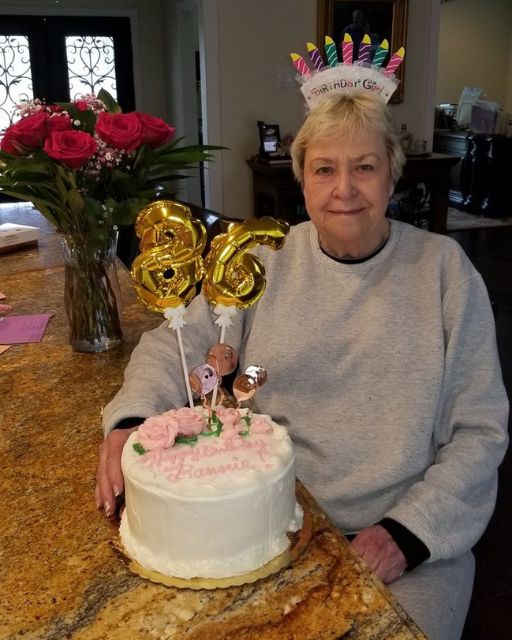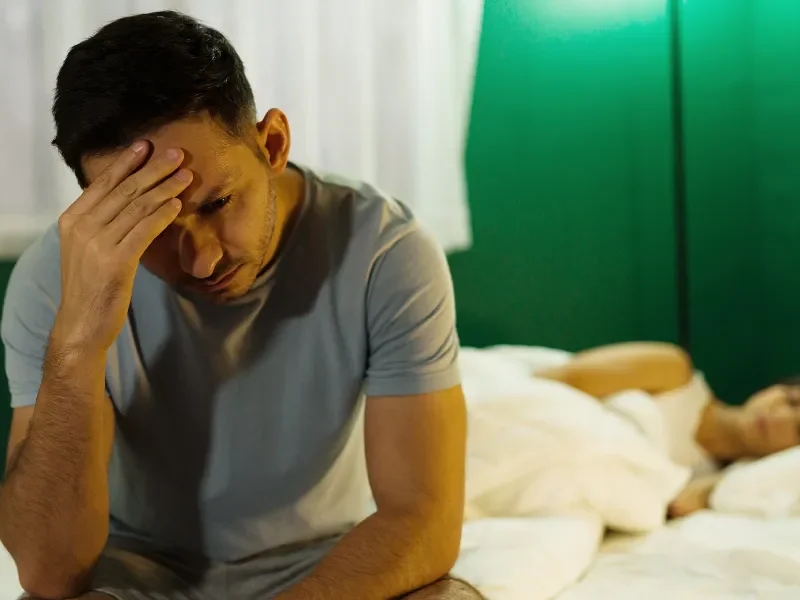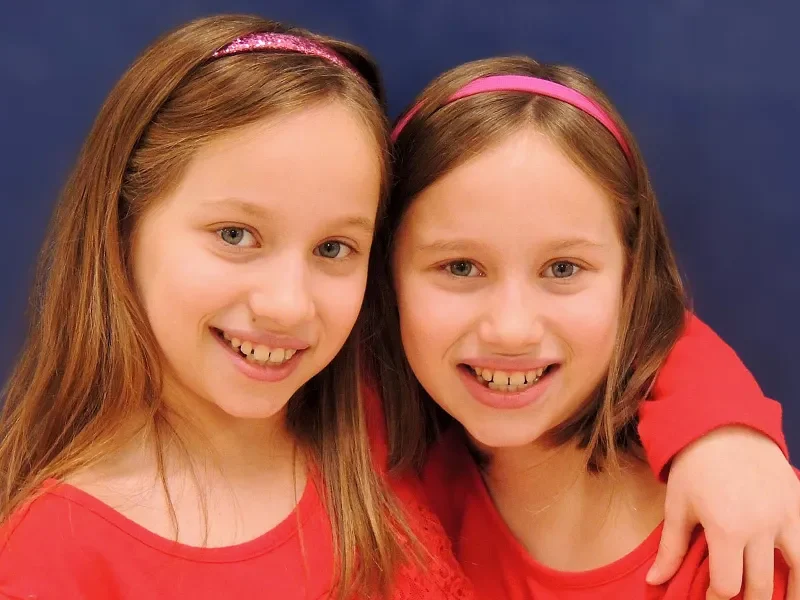Every year, we throw Grandma Rannie the same birthday party. Cake, roses, goofy candle numbers, and that ridiculous tiara she insists on wearing. It’s our little tradition. But this year—her 86th—something felt… different.
Not because of the party. That was the same. It’s her.
She still looks the exact same as she did when I was a kid. Not just good for her age—suspiciously good. No liver spots. No wrinkles deep enough to explain eight and a half decades of living. People always whisper, “She must have amazing genes,” or “Maybe she had work done,” but she’s never been the Botox type.
And then this year, something unexpected happened. We were all sitting around the living room after the cake was cut, the laughter still echoing in the house as we shared old family stories. Grandma Rannie, as always, sat at the head of the table, her tiara still firmly in place, and her eyes sparkling with mischief. But as I glanced at her, something about her seemed… off. She was laughing along with the stories, but her eyes weren’t quite as lively. There was a hint of something hidden, something deeper.
Then, in the middle of a conversation about her childhood, she stopped abruptly. Her smile faded just for a moment. It was like the air in the room shifted.
“Grandma, are you okay?” I asked, my voice quieter than usual, sensing the change.
She looked at me, her face softening. “I’m fine, darling,” she said, her voice light but there was a tremor beneath the surface. “Just a little tired, that’s all.”
I didn’t press it further. She’d always been the rock of the family—strong, independent, and, honestly, indestructible. But as the night wore on and everyone started to leave, I couldn’t shake that feeling. There was something more to Grandma’s story than she was letting on. Something she wasn’t saying.
The next day, I decided to visit her alone. I hadn’t made an effort to do that in a while—everyone was always over, and it was easy to assume she was just as fine as always. But when I walked into her house, I saw her sitting at the kitchen table, holding a cup of tea, her hands slightly trembling as she sipped from it.
“Grandma?” I asked cautiously.
She looked up at me, as if she hadn’t heard me approach. “Oh, sweetheart, didn’t hear you come in,” she said, trying to smile, but her eyes were distant.
“Are you sure you’re okay?” I pressed, sitting across from her. “You seemed… off last night.”
She paused, and I could see the weight of what she was about to say in her eyes. Finally, she sighed and put down her tea.
“There’s something I’ve been meaning to tell you,” she began, her voice soft. “Something I’ve kept from the family for a long time.”
My heart skipped a beat. I’d never seen her so serious. Grandma was the one who always made light of everything, the one who never seemed to worry about anything. But this moment felt different.
“I’m listening,” I said, my voice barely above a whisper.
She leaned back in her chair, her eyes searching the walls as if she were gathering the strength to say something difficult. “You know how everyone always comments on how young I look? How they think I must have had some secret fountain of youth?” she asked, her voice quiet but steady.
I nodded, unsure where this was going.
“Well,” she continued, “the truth is… I’m not 86.”
I blinked, trying to process her words. “What do you mean?”
“I’m actually 102,” she said, her voice low but calm.
I stared at her, trying to make sense of what she was saying. “Grandma, you can’t be serious.”
“I am,” she said, the corners of her lips lifting into a smile that didn’t quite reach her eyes. “I’ve kept it a secret all these years because I didn’t know how to explain it. I didn’t know how to tell anyone.”
For a moment, the room was silent. My mind raced as I tried to make sense of the impossibility of what she was saying. She was 102, but she looked the same as she did when I was a child. No gray hair, no wrinkles, no age spots. She wasn’t even showing the typical signs of aging that most people her age would have.
“But how?” I asked, my voice barely audible. “How can you look so… so young?”
She sighed, folding her hands on the table in front of her. “It’s a long story. But the short version is this: I made a decision many years ago to stop aging.”
“Stop aging?” I echoed, still trying to grasp the reality of the situation. “Grandma, what are you talking about?”
She took a deep breath, looking at me with a mix of regret and weariness. “When I was in my twenties, I was part of a… well, let’s just say a very unusual experiment. A man I met, a scientist, offered me a way to slow down the aging process. He said it would be temporary, just something to keep me healthy for a while. I thought it was a dream come true—youth forever. But I didn’t realize what I was getting into.”
“Grandma,” I whispered, my heart racing, “you agreed to let someone do this to you?”
She nodded slowly. “Yes, I did. At first, it worked. My body stayed young. But over time, I started to notice something strange. People around me started aging, and I didn’t. I watched as everyone I loved grew older, and I stayed the same. It was… it was harder than I ever expected.”
She paused, her voice thick with emotion. “But the hardest part was the secret. I had to lie to everyone. I had to pretend I was like everyone else, but deep down, I was always afraid someone would find out. Afraid they’d see me for who I really was.”
I sat back, stunned by the weight of her confession. My grandma—who had always been my rock, my constant source of love and support—was hiding something far deeper than I could have ever imagined.
“I’m not proud of it,” she continued, her voice quiet but resolute. “But I did what I thought was necessary. I wanted to live my life, to love the people around me, but I couldn’t bear to lose them. And I couldn’t bear to grow old, alone, while they passed me by.”
I reached out, taking her hand in mine. “Grandma, I don’t know what to say.”
“I know it’s a lot,” she said with a sigh. “But I wanted you to know. It’s time you understand the truth.”
Over the next few weeks, I couldn’t stop thinking about what Grandma had told me. She had lived a lie for over eighty years, all in the name of trying to preserve her youth. But in the process, she had lost the one thing she truly needed—connection. Real connection.
I thought about what it meant to truly live, to grow old surrounded by the people we love. There’s a beauty in aging, in seeing the lines of a life well-lived etched on our faces, in the memories we carry with us. And yet, Grandma had tried so hard to stop it, to escape it.
And then came the twist. A few months after she told me the truth, Grandma was diagnosed with a rare condition. The effects of the experiment she had undergone all those years ago started catching up with her. Her body, though young in appearance, had started to deteriorate at an alarming rate. It was as if her body had been fighting a battle for too long, and it finally gave in.
But instead of retreating into herself, she opened up even more. The woman who had always been so strong, so independent, now needed the love and support of her family more than ever. And we were there for her. We all were.
Grandma Rannie, for all her youthfulness, had finally accepted what she had spent so many years avoiding—growing old is a part of life, and it’s a beautiful part.
In the end, the real lesson was clear: we cannot cheat time. Time will catch up with us all, and we must embrace it, for it is what makes our lives meaningful. No amount of youth can replace the love and memories we create along the way.
And so, as we all gathered around Grandma’s bedside, holding her hand, I whispered a promise to her—that we would continue to honor her legacy, not just in her youthfulness, but in the wisdom she had imparted to us all.
If you know someone who’s been struggling with accepting the passage of time, share this story with them. Sometimes, the greatest gift we can give someone is the permission to grow old gracefully, and the courage to embrace life as it comes.


